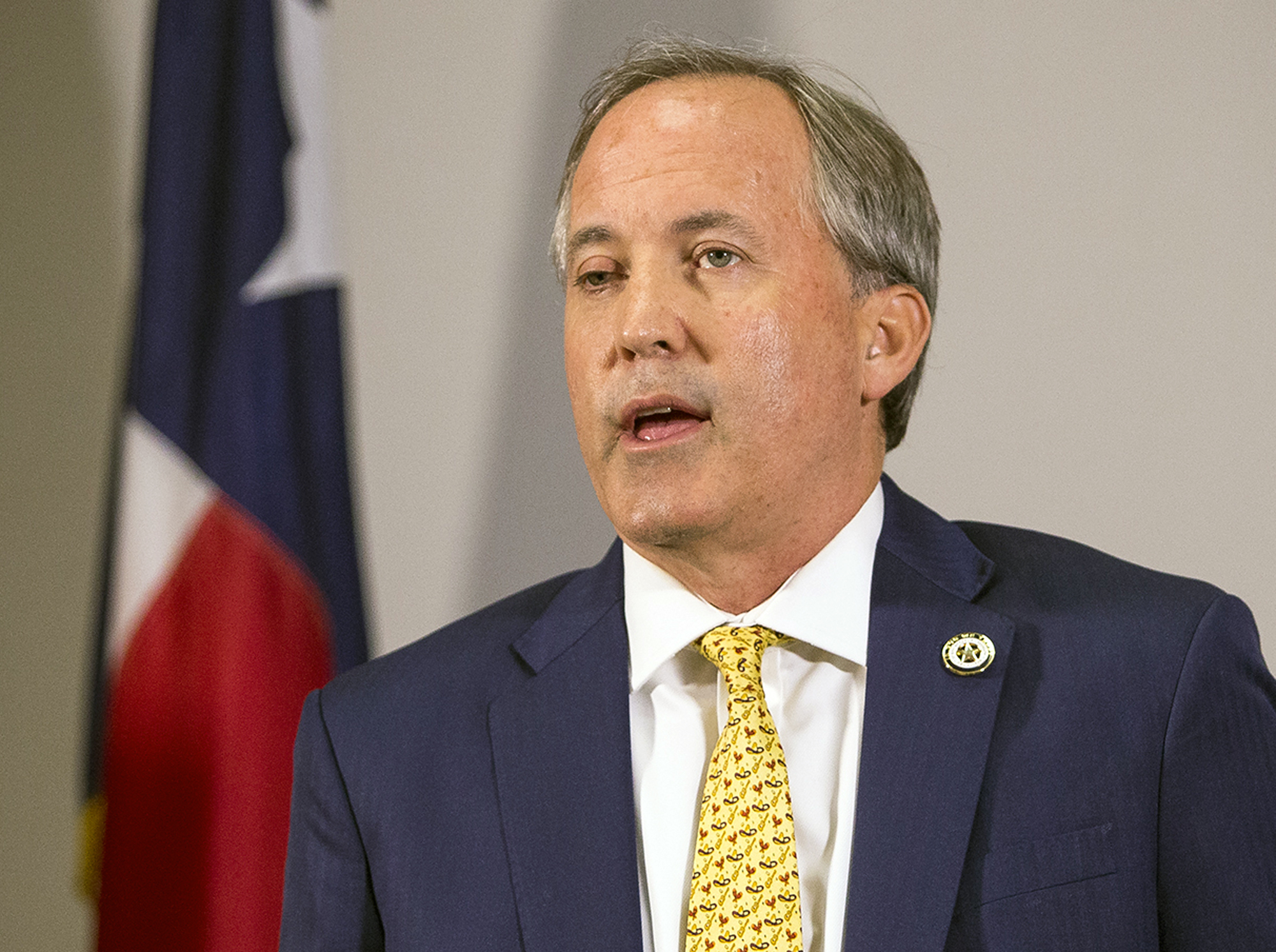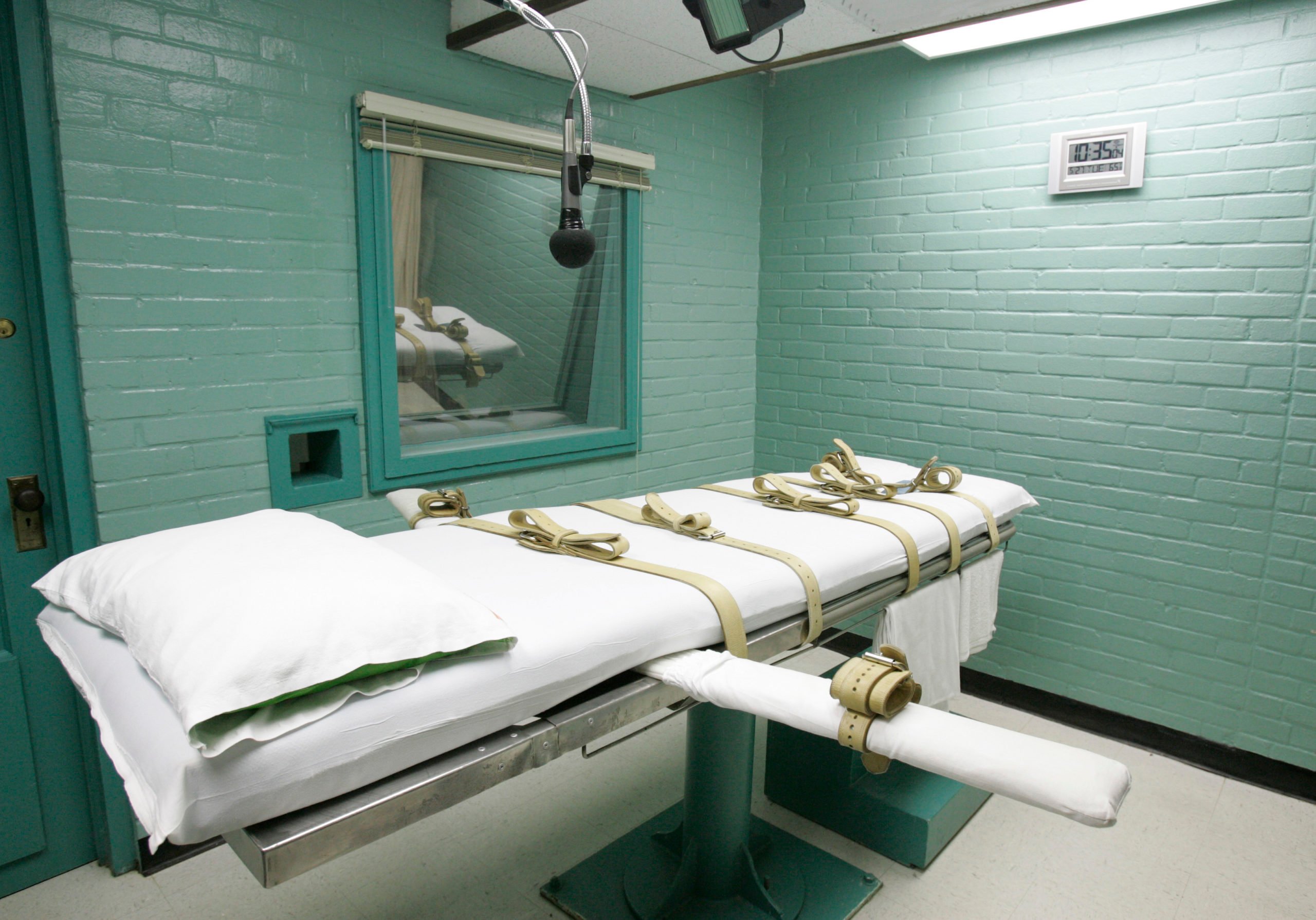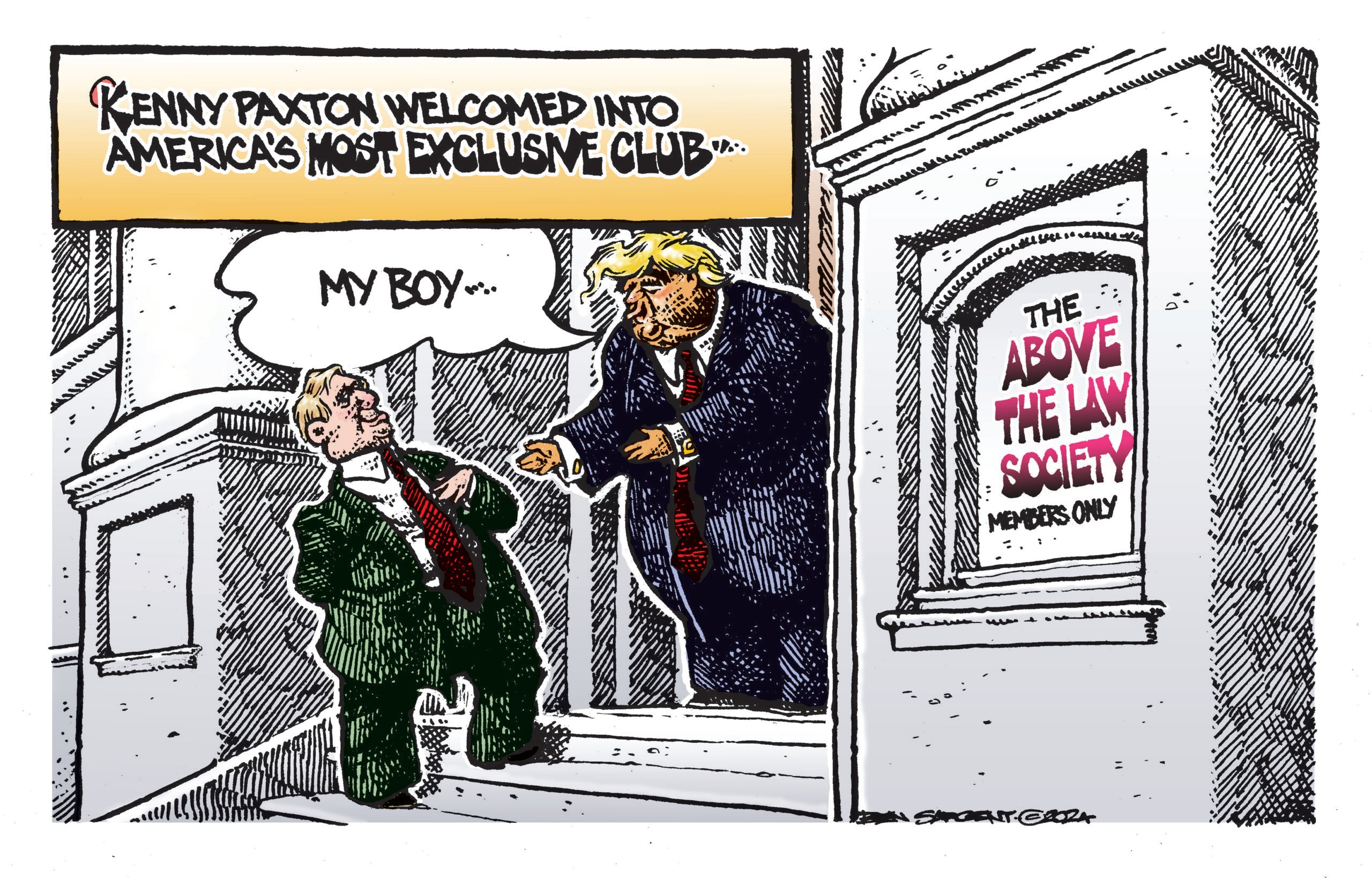
Paxton Targets GOP Judges After They Strike Down His Powers on Election Fraud
The embattled state attorney general is hoping to get by with a little help from his friends.

If at first you don’t succeed, try, try again. That’s been a cornerstone of Texas Attorney General Ken Paxton’s legal strategy in court when combating foes of all stripes—socialists in Washington, tyrants on local school boards, and now, a state court filled entirely with Republican judges.
After the state’s Criminal Court of Appeals—the highest court for criminal cases—axed Paxton’s power to unilaterally prosecute alleged election crimes in December, the embattled lawman responded by stoking the fury of the GOP ranks.
Typically a sleepy outpost in the world of Texas politics, the high criminal court now finds itself a target of the party’s increasingly rabid crusade for “election integrity.” Eight of the nine judges—all of whom are Republicans—signed onto the decision. The ruling overturned a provision of state law granting the attorney general unilateral power to prosecute alleged voter fraud because, the judges said, it violated the state constitution’s separation of powers. The attorney general can still prosecute such cases with permission from local prosecutors.
This struck a major blow to Republicans’ efforts to find and prosecute voter fraud, which they say hinges in large part on empowering the state attorney general to supersede uncooperative local district attorneys. While election fraud is exceedingly rare, Texas Republicans have long used claims of widespread illegal voting to further restrict access to the ballot. In 2021, Paxton’s voter fraud unit spent $2.2 million and only closed three cases.
Paxton immediately lashed out against the court, claiming their decision meant “Soros-funded district attorneys will have sole power to decide whether election fraud has occurred in Texas” and has since questioned the partisan loyalties of the eight GOP judges. He has filed a motion calling for the court to rehear the case, which is now backed by an army of right-wing activists and at least two dozen Republican lawmakers.
As the Austin American-Statesman reported this week, Paxton has also rallied the troops with the help of prominent conservative hucksters involved in spreading former President Donald Trump’s lies that the 2020 presidential election was stolen. On Lindell TV, a website run by infamous MyPillow CEO and “Stop the Steal” booster Mike Lindell, Paxton urged viewers to contact the court judges. “Call them out by name,” Paxton said. “I mean, you can look them up. There’s eight of them that voted the wrong way. Call them, send mail, send email.”
The state attorney general followed up with an appearance on the “War Room” podcast with Steve Bannon, Trump’s onetime political consigliere, who was eager to amplify Paxton’s pleas.
“We’re going to make them all famous, and they have to understand they’re going to be made famous. Very famous. On a global scale,” Bannon said, according to the Statesman report.
“That’s awesome,” Paxton responded. “That’s exactly what they need. They need to know because nobody knows who they are.”
Paxton hasn’t been alone. Steve Hotze, the notorious right-wing zealot from Houston, is working to stir up the party base. A PAC run by the pastor reportedly sent out robocalls to tens of thousands of Republicans around the state with a message from Hotze urging them to call the Criminal Court of Appeals. “Leave a message that you want the court to restore Paxton’s right to prosecute voter fraud in Texas,” Hotze said, according to the Houston Chronicle. “If this decision isn’t reversed, then the Democrats will steal the elections in November and turn Texas blue.”
Hotze has a long history of ginning up voter fraud conspiracies. In 2020, Hotze hired a team of investigators—including a former Houston police captain—to expose an alleged mail-ballot harvesting plot orchestrated by Houston Democrats. The allegations were dismissed as bogus by local prosecutors. Hotze also unsuccessfully filed numerous lawsuits in an effort to block efforts to expand voting access during the pandemic, and to toss out 127,000 ballots cast at drive-thru voting locations in Harris County.
The efforts by Paxton to encourage public pressure against the court—which some experts say violates legal ethics—have been successful. The Criminal Court of Appeals has been overwhelmed by a flood of calls and emails by activists demanding they rehear the case and reverse their ruling. Several emails, obtained by the Statesman, threatened the judges with political repercussions if they failed to reverse course.
One menacing email—sent by a self-described “US Navy Veteran FreeMason Armed Patriot”—was forwarded along to law enforcement. One part of the message said: “Your court now is on my list to go after in The Patriot hunt for Communists. We are armed at all times so do not cross the line.”
Legal experts say that it would be extraordinarily unusual for the Court of Appeals to reverse its ruling, especially one that was so overwhelmingly decided.
In 2018, the Criminal Court of Appeals ruled that the pay agreement for the special prosecutors in Paxton’s securities fraud cases violated state law—which was a significant victory for Paxton and his defense team’s efforts to drag out the case for years. But the decision was a controversial one within the court, with three of the judges writing dissenting opinions and another writing both a dissenting and concurring opinion. Even so, the court dismissed the prosecutors’ motion for a rehearing.
Amid the growing political pressure, Governor Greg Abbott broke his silence over the case this week by joining with Paxton. “Texas’ highest law enforcement officer has constitutional authority to enforce that election-integrity law. The Court of Criminal Appeals needs to uphold Texas law and the Attorney General’s responsibility to defend it,” Abbott’s spokesperson said.
Texas is one of the few states where judges must run in partisan elections, which critics say opens the judiciary up to outsize political influence.
As a former district judge and state Supreme Court justice, Abbott has been one of those critics. In 2019, he tweeted, “We need judges devoted to the constitution and strict application of the law, not to the political winds of the day.”
Republicans are already plotting alternatives if the court doesn’t change its mind. State Representative Briscoe Cain pledged to push a bill in the next legislative session that would allow the attorney general to take an election fraud case to a neighboring (and more politically amenable) county if the local prosecutors refuse to play ball.
For his part, Paxton has said that if the court doesn’t reopen the case, he’ll demand that Abbott call a special session before the upcoming 2022 elections to pass legislation that would allow his office—as well as private individuals—to sue with the threat of “large penalties” over anything related to voter fraud.
As he told Bannon, he also wants the Legislature to pass another law that grants him unilateral prosecutorial power of election laws. That, he said, would require the court “strike it down again, because it would take several years to go through that process, and at least we can keep that (law) in place through the next election.”



